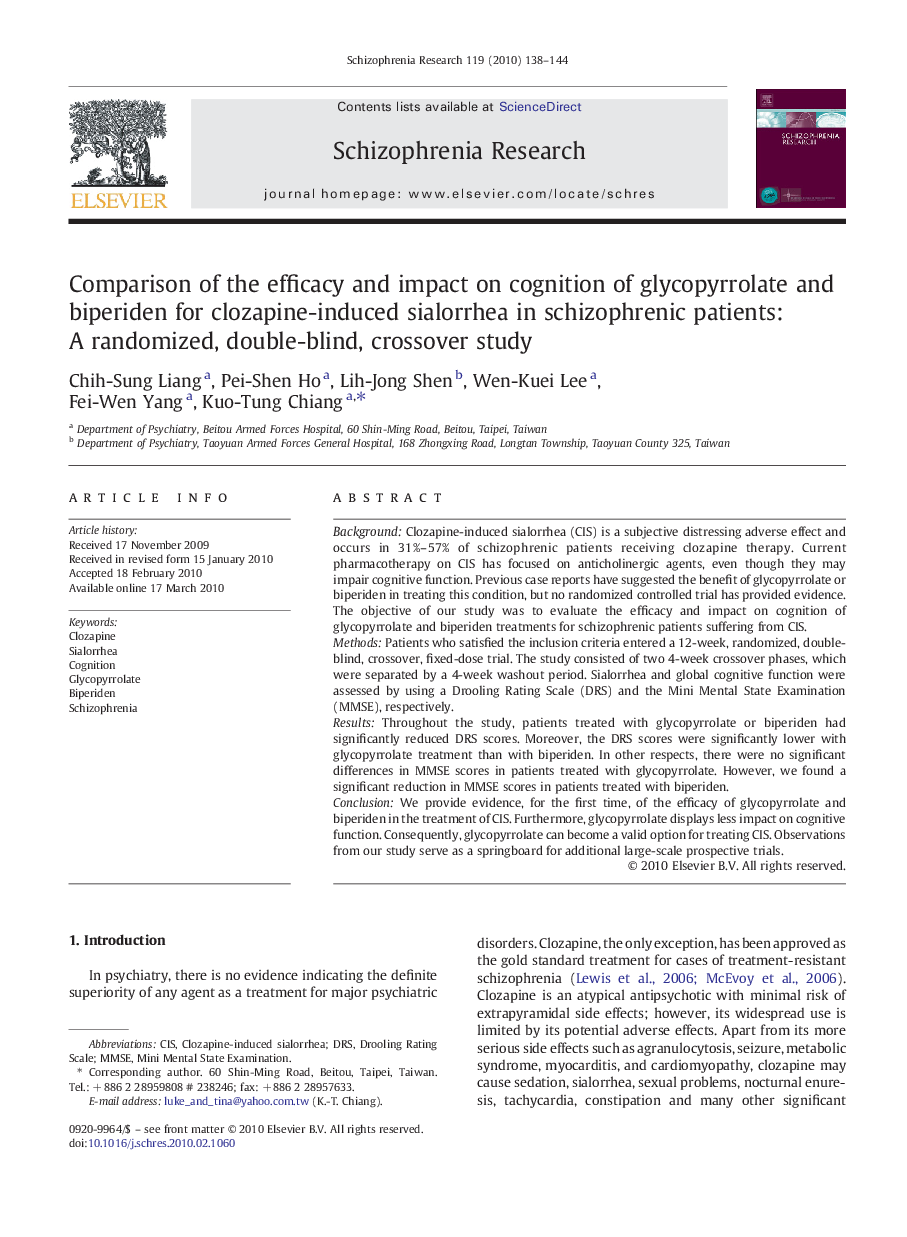| Article ID | Journal | Published Year | Pages | File Type |
|---|---|---|---|---|
| 341631 | Schizophrenia Research | 2010 | 7 Pages |
BackgroundClozapine-induced sialorrhea (CIS) is a subjective distressing adverse effect and occurs in 31%–57% of schizophrenic patients receiving clozapine therapy. Current pharmacotherapy on CIS has focused on anticholinergic agents, even though they may impair cognitive function. Previous case reports have suggested the benefit of glycopyrrolate or biperiden in treating this condition, but no randomized controlled trial has provided evidence. The objective of our study was to evaluate the efficacy and impact on cognition of glycopyrrolate and biperiden treatments for schizophrenic patients suffering from CIS.MethodsPatients who satisfied the inclusion criteria entered a 12-week, randomized, double-blind, crossover, fixed-dose trial. The study consisted of two 4-week crossover phases, which were separated by a 4-week washout period. Sialorrhea and global cognitive function were assessed by using a Drooling Rating Scale (DRS) and the Mini Mental State Examination (MMSE), respectively.ResultsThroughout the study, patients treated with glycopyrrolate or biperiden had significantly reduced DRS scores. Moreover, the DRS scores were significantly lower with glycopyrrolate treatment than with biperiden. In other respects, there were no significant differences in MMSE scores in patients treated with glycopyrrolate. However, we found a significant reduction in MMSE scores in patients treated with biperiden.ConclusionWe provide evidence, for the first time, of the efficacy of glycopyrrolate and biperiden in the treatment of CIS. Furthermore, glycopyrrolate displays less impact on cognitive function. Consequently, glycopyrrolate can become a valid option for treating CIS. Observations from our study serve as a springboard for additional large-scale prospective trials.
